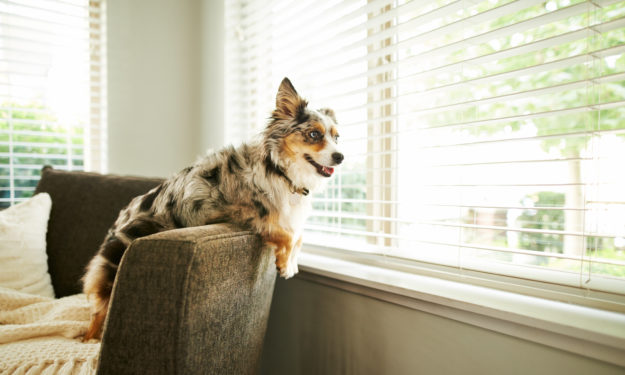Separation Anxiety in Dogs After COVID Isolation

Written by Yvonne Driscoll, Port City Veterinary Referral Hospital
Never did I imagine that a devastating virus would afford me that opportunity, and never did I imagine that it would result in my dog, and countless others around the globe, developing separation anxiety. But here we are.
Dogs are very routine-oriented creatures. They thrive on consistent schedules and clear expectations. When they suddenly have a change to their routine, behavior issues can easily develop. Their anxiety can manifest in a number of ways; not eating, inappropriate elimination, destruction, self harm, becoming more vocal, and more. Punishment for their behavior only worsens it, and can severely damage the relationship you have with him or her.
As dog owners who have been working from home prepare for the eventuality of going back to the office post COVID-19, we could all do our canine companions a favor by taking a little time and care in preparing them, as well.
I look at it as an investment in my dog’s mental health, as well as my own. Trust me when I say that separation anxiety is no walk in the park!
- first, rule out any underlying medical or behavioral problems
- next, determine whether your dog has mild separation anxiety, or moderate to severe separation anxiety
- finally, consider your options: can it be managed with puzzle toys? Do you need to get a behaviorist or trainer involved? Can anxiety medications help? To crate or not to crate?
Here are a few great tips from the ASPCA to make their transition easier for all parties involved.